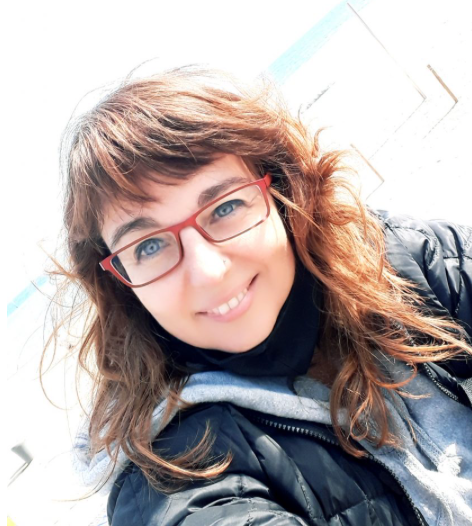
Meet Elisabetta Broglio, Ph.D. who works as citizen science facilitator at the Centre for Genomic Regulation (CRG), managing the Genigma citizen science project.
Firstly, tell us a bit about CRG
The CRG is an international biomedical research institute based in Barcelona, Spain. It counts with more than 400 scientists working in different fields as genomics, gene regulation, stem cells, cancer, cell and developmental biology, bioinformatics and systems biology. Scientists count with the support of around 80 professionals who help them in many tasks, including the interaction between science and society and the communication of scientific results to non-expert public.
What comes to mind when you talk about Open Science?
For me, Open science is a question of transparency and access to open resources, data, outputs and knowledge for individuals inside and outside academia and research institutions. Open Science, in the framework of Responsible Research and Innovation, requires a deep honest attitude and an effort to achieve equal opportunities for men and women, and minorities. If well implemented, Open Science will contribute to the fall of some current science’s barriers.
What is the motivation behind CRG getting involved in the ORION Open Science project?
One of the CRG missions is to establish a bilateral dialogue with society. Scientific outreach has been for many years a “top-down” process, an extension of teacher-to-student classes. It is time to leave the monologues and try to establish dialogues with society, promoting knowledge exchange among people with different backgrounds and a cultural change for listening citizen’s needs. It is a big challenge, especially for fundamental research, but CRG is moving in this direction and ORION (together with other activities of public engagement that CRG promotes) is an example of this will.
What do you hope to achieve through the project?
We hope to provoke a chain of changes in practices, institutional policies and scientific attitudes. While disseminating Open Science principles, theoretically and through experiments and projects, our purpose is to experiment and evaluate complexities and strengths of this discipline. It will take time, but we are confident that a change can be very fruitful for science and our society in general.
What do you see is the greatest challenge for ORION?
The integration of changes at the institutional level. ORION can motivate changes in scientific views, transform some approaches and give input to start new forms of collaborations with society…but if we expect these changes to continue, institutions must support and integrate these new methodologies and practices in their middle-long term strategies and in research evaluation. In my view, another of the ORION greatest challenge will be find good channels to circulate the lessons learnt and impact obtained, to motivate discussions and be inspiring for other institutions and researchers.
What do you personally find most interesting/exciting about the ORION project?
It is being a great pleasure to work with the fantastic people from the ORION consortium and learn from each other how to implement different aspects of Open Science in different “environments”. ORION gives me the opportunity to work in the citizen science experiment, called Genigma. I am supporting the CRG’s scientific team in the discovery of co-creation processes, the establishment of dialogues with society and listening of people needs and expectation. It was exciting to observe how the scientific team moved from some initial scepticisms to enthusiasm, through the multiple events with the public. They were collecting valuable ideas from participants and incorporate them in the project. We are now preparing the Genigma app and working together for an effective plan to communicate the game and the science that is behind. We hope the game will be attractive to a wide range of people and useful to face the big challenge (social and scientific) it represents.
In one year, when the project is coming to an end, what is your dream scenario for ORION?
A great scenario would be a working group in Open Science at the institutional level, networking nationally and internationally with other Institutions. This working group would organize sessions with people outside of academia, for examples with social scientists, citizens associations and the general public to constantly scout for new proposals and initiatives to be implemented at local level. Specifically for citizen science at CRG, the experience with the ORION experiment can be useful to design and implement a document of good practices about how to run other citizen science projects in the future.